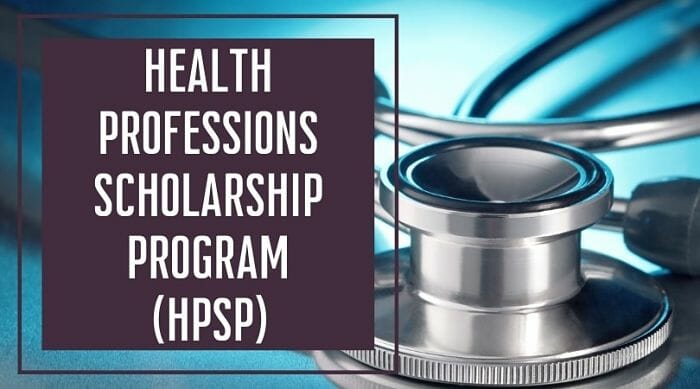Military Medical Pathways

There are 2 pathways to Military Medicine:
Uniformed Services University, also known as the USUHP and the Health Professions Scholarship Program (HPSP).
Uniformed Services University:
The USU medical education program integrates basic science, clinical medicine, and health systems science into a comprehensive curriculum that includes over 500 hours of military-unique training. The Molecules to Military Medicine curriculum also includes specialized training in areas such as leadership and interdisciplinary teamwork, cross-cultural medicine, trauma training, disaster response, and tropical medicine. As reflected by the school’s motto, “Learning to Care for Those in Harm’s Way,” we are dedicated to creating and fostering an environment of learning and investigative curiosity. This, in turn, supports the development of true medical professionalism which helps transform incoming students into competent, caring, and compassionate uniformed services physicians.
They accept both civilians and active duty personnel. Students accepted to the program pay no tuition and commission as officers into one of the four uniformed services before beginning classes. In return, they will complete an active duty service commitment upon graduating: seven years for the Army, Navy, and Air Force, and ten years for the Public Health Service.
USU Guide:
Application Requirements and Pre-reqs: https://medschool.usuhs.edu/admissions/application-requirements
USU FAQ
-
DO THEY ACCEPT STUDENTS WITHOUT ANY PRIOR SERVICE EXPERIENCE?Approximately 60% of all accepted students have no prior military service. However, after being accepted into the medical program, all students must commission into the Army, Navy, Air Force, or Public Health Service prior to matriculation. Before the first year begins, all future students are sent to their respective officer training facilities where they are taught how to become military leaders. Learn more here: https://medschool.usuhs.edu/node/62950
-
DO YOU ACCEPT TRANSFER STUDENTS?The USU School of Medicine does not accept transfer students. All students must take the full four year curriculum.
-
I’M ALREADY IN THE MILITARY, WHAT ABOUT ME?
Military applicants compete with civilian applicants on the same level. However, there are two considerations which set military applicants apart.
First, if you are on active duty, in one of the military academies, or the ROTC, Officers must obtain a Letter of Approval (LOA) and Enlisted must obtain a Letter of Release (LoR) to apply from your branch of service. The LOA or LoR must clearly state that approval is granted.
Final letters of approval/release must come from the following:
United States Air Force Personnel Command, San Antonio-Randolph AFB, Texas
United States Army Human Resources Command, Fort Knox, Kentucky
United States Navy Personnel Command, Millington, Tennessee
United States Marine Corps Manpower and Reserve Affairs, Quantico, Virginia
United States Health Service, Office of the Surgeon General, Washington, DCFor applicants in the reserves, a DD form 368 and a letter from your commanding officer (who has the authority to release you) will need to be submitted.
Those in the IRR do not need the LOA or LoR.
Secondly, active duty and other military obligates are restricted when selecting a branch of service. They must comply with their LOA or (LoR) instructions. It is rare that a component will give permission to transfer into another component. If such permission is not granted, the applicant must enter the same component in which they currently serve.
-
WHAT ARE THE AVERAGE MCATS AND GPAS, AND WHAT ARE THE LOWEST SCORES ACCEPTED?The average MCAT scores and GPA are as follows:
MCAT: 511
GPA: 3.7The lowest scores accepted are as follows:
MCAT
The minimum Total MCAT score in order to be reviewed by the Admissions Committee is a 496 or higher.
GPA
Unless you earned a cumulative GPA of 3.0 or higher in a Post-Bacc or Master’s Program your application will be automatically withdrawn. -
WHAT IF I DON’T MEET THE ADMISSION REQUIREMENTS?Missing course prerequisites: If the prerequisite can be completed before June 1st of the year of matriculation, the applicant’s file can be reactivated. Any offer of acceptance would be contingent upon completion of the coursework.
Noncitizens: If the person is a non-citizen but can become a citizen on or before November 1st of the year preceding matriculation, their file can be reactivated.
Weak academic packages: USU recommends post-baccalaureate (or graduate) work to improve a below-average grade point average. Many undergraduate schools offer such programs specifically to prepare an applicant for medical school. The Admissions Committee recommends about 25-30 additional credit hours.
Low MCAT scores: USU recommends students retake the MCAT if they have low scores. The Admissions Committee does not average multiple test scores together and any improvement is looked at favorably by the Admissions Committee.
If an applicant does not meet the requirements of USU, another option for military medicine is the Health Professions Scholarship Program (HPSP) administered by the Air Force, Army and Navy. This program provides funding for medical school in exchange for service. -
WHAT MAKES AN APPLICANT COMPETITIVE?The Admissions Committee looks at the “whole” person. The five main factors that determine an applicants eligibility are undergraduate cumulative grade point average (science GPA is carefully weighed), MCAT scores, Letters of Recommendation (LORs), clinical experience, and AMCAS and USU statements.
-
WHAT LETTERS OF RECOMMENDATION ARE REQUIRED?
A Premedical Committee letter of recommendation packet is required by the Admissions Committee. A compilation packet from your University’s letter service will be accepted in lieu of a premedical committee packet.
If a premedical letter or compilation packet cannot be provided, the following ACADEMIC letters must be submitted:
Two science letters (biology, chemistry, physics, etc.)
One non-science letter (math, English, humanities, etc.)There are no substitutes for these letters. Even if you have been out of school for an extended period of time, you must still attempt to submit academic letters of recommendation.
If unable to provide a Premedical Committee or compilation packet or any of the academic letters, a missing letter explanation will need to be provided in the appropriate area of the secondary application.
WHAT IS A CLINICAL LETTER?
A clinical letter is a letter of recommendation which can be written by a Healthcare Professional (Doctor, Nurse, Physician Assistant, Nurse Practitioner, Certified Nursing Assistant, etc.) who has observed your patient care interactions. They have witnessed firsthand your hands-on experiences in the healthcare environment and how you have implemented your developing clinical skills in real life experiences.
Here are some examples of a clinical letter:
Physician at an office at which you worked, shadowed, or volunteered
Health care staff member who has observed you in the emergency department
Nurse that you have been working with in a health care facility, nursing home, or clinic
Member of the staff (e.g. supervisor) at the place at which you are providing volunteer medical service who has observed you (Veterans Home, Hospice, etc.)
Supervisor of your EMT Department
Supervisor at the hospital where you work as a nurse, medical scribe, phlebotomist, medical assistant, tech, etc.WHAT IS A PRE-MEDICAL COMMITTEE LETTER OF RECOMMENDATION. WHAT IF I DON’T HAVE ONE?
Some undergraduate schools have a pre-medical committee that interviews students, compiles letters of recommendation, and writes cover letters to medical schools. The cover letter usually ranks an individual among the pool of applicants from their school. USU prefers applicants have a pre-medical letter if their school offers one.
If students do not submit a letter from the committee, they must explain their reason for not providing one.
If an applicant’s undergraduate school does not have a pre-medical committee, notify USU in a statement with the secondary application materials. The university will accept individual letters of recommendation.
USU Applicants should submit four letters of recommendation:
Two letters of recommendation should be written by a science faculty member
One letter of recommendation should be written by a non-science professor
One letter of recommendation must be written by a supervisor of clinical work. This can be a part of the pre-medical committee letter or separate.WHAT IS A MISSING LETTER EXPLANATION?
A missing letter explanation is a one to two paragraph explanation detailing why you were unable to provide a required letter of recommendation, such as an academic or clinical letter. This explanation needs to be submitted as part of your secondary application in the appropriate areas.
-
I WANT TO COME TO USU’S SCHOOL OF MEDICINE AND SERVE IN THE ARMY/NAVY/AIR FORCE/PUBLIC HEALTH SERVICE. IF ACCEPTED, WILL I BE GUARANTEED A SPOT IN THIS SERVICE?No. Students complete a preference statement on interview day ranking their interest in the branches of service. Every effort is made to accommodate this preference. However, when an applicant is approved for acceptance by the Admissions Committee, they will be offered an appointment in their service of choice if there are seats available.
Health Professions Scholarship Program:

The Health Professions Scholarship Program (HPSP) is a comprehensive scholarship program that assists medical and dental students with school tuition and fees in exchange for their commitment to military service. The scholarship offers many benefits, including tuition coverage, reimbursement for books and other fees, a monthly stipend to assist with living costs, and many others.
Tuition + monthly stipend + 45 days active duty pay per year + reimbursement for required books, equipment and most academic fees: Monthly stipend of $2,450. $20,000 signing bonus.
This scholarship program is offered through different branches of the US military and HPSP scholarship benefits and requirements are slightly different between each branch:
Air Force
Army
Navy
To Apply:
Students who have already completed part of their medical or dental education can still apply for HPSP Scholarships. In order to apply, contact a recruiter within the respective branch of the military you are interested in serving in, and they will direct the application process from there!

